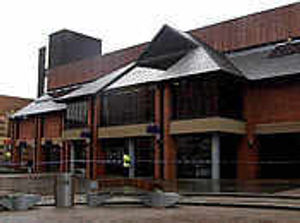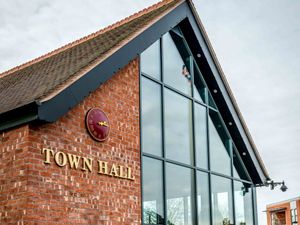Invisible killer in their sights
Too many businesses are overlooking the legal requirement of risk assessments for Legionella bacteria. It could cost them dear, writes Neil Thomas.

Men from diverse backgrounds brought together by the deadly legionnaire's disease - and the riddle of how to defeat it.
Cases in England and Wales are on the increase, rising from 187 in 1990 to 357 in 2005. Around 30 people die each year - some from something as simple as taking a shower.
Arthur Norbury, Rob Griffiths and Steve Mount are determined to drive down that number.
They have made it their business and, if truth be told, their passion. The trio have formed a partnership called Harper Consultants.
Risk assessments and sales executive Arthur, and risk assessments and training officer Rob, live in the Shrewsbury area. Steve, the microbiologist, is from Liverpool.
Factories, hotels, schools, hospitals, offices - in fact any public or private building which has more than five employees - must have an assessment carried out by law, according to the Health and Safety at Work Act of 1974.
"In practice a lot of people don't have an assessment or have the sort that's totally inadequate," says Arthur.
"Small companies think they can't afford it, but they can't afford not to. Some of the sights we see when carrying out assessments are worrying," he adds.
Legionnaires is a bacterial disease that can lead to pneumonia. The majority of cases are single and sporadic, although outbreaks can occur. It picked up its name after an outbreak in Philadelphia in 1976 among people attending a state convention of the American Legion.
Subsequently the bacterium causing the illness was identified and named legionella pneumophila.
Early symptoms include a flu-like illness with muscle aches, tiredness, headaches, dry cough and fever. Death occurs in 10 to 15 per cent of otherwise healthy cases and the main at risk group are men over 50.
Steve admits his blood still boils when he thinks of Barrow, the Cumbrian town where seven people died in the summer of 2002.
A 50-page Health and Safety Executive report identified a catalogue of errors by officials. More than 180 people were infected after a faulty air conditioning system sprayed the deadly bacteria into an alleyway outside the Forum 28 Arts Centre.
Barrow Borough Council, which ran the centre, was cleared of corporate manslaughter, but fined £125,000 for breaching health-and-safety laws.
The council's design services manager, Gillian Beckingham, was also cleared of manslaughter following an eight-week trial, but convicted of health and safety breaches.
Preston Crown Court heard she had failed to maintain the contracts that provided for the upkeep of the air conditioning unit.

"There have been cases in Shropshire in recent years but it is the Barrow case that really highlights the serious consequences for organisations and companies which fail to comply with the law relating to legionella prevention and management," says Steve.
Rob adds: "There may be court charges, fines, maybe even imprisonment for someone. But for others there is a far higher cost. They may be statistics, but as soon as there is a name, an age, a personality and grieving friends and relatives, it really hits home."
Arthur, Rob and Steve work as independent companies, providing back up for each other.
"We undertake risk assessments for regional water companies, other risk assessment companies, private and sheltered nursing homes, factories, and healthcare premises throughout the North and Midlands," explains Arthur.
"We also provide a complete risk-management package which includes routine monitoring, remedial works, water sampling and training."
Arthur was a prison officer for 20 years in Shrewsbury, and was involved in a pilot risk-assessment scheme for legionella in the prison service, sparking his interest in the subject.
On leaving the service he became a self-employed plumber before answering an advert to work for a Birmingham company in legionella risk assessment, where he met Rob and Steve.
Rob, who like Arthur lives in the Shrewsbury area, is a qualified plumber who also worked as a water regulation enforcement manager with Severn Trent Water Company.
"I was getting inundated with calls about Legionella and became interested in the subject," he says.
Steve worked in the NHS before leaving to do a degree course. He ran a number of laboratories and has long been associated with the acknowledged legionella authority Dr Tom Makin based at Department of Medical Microbiology at Royal Liverpool, Broadgreen and University Hospitals, Liverpool.
"I found the subject fascinating," he explains.
By Neil Thomas




